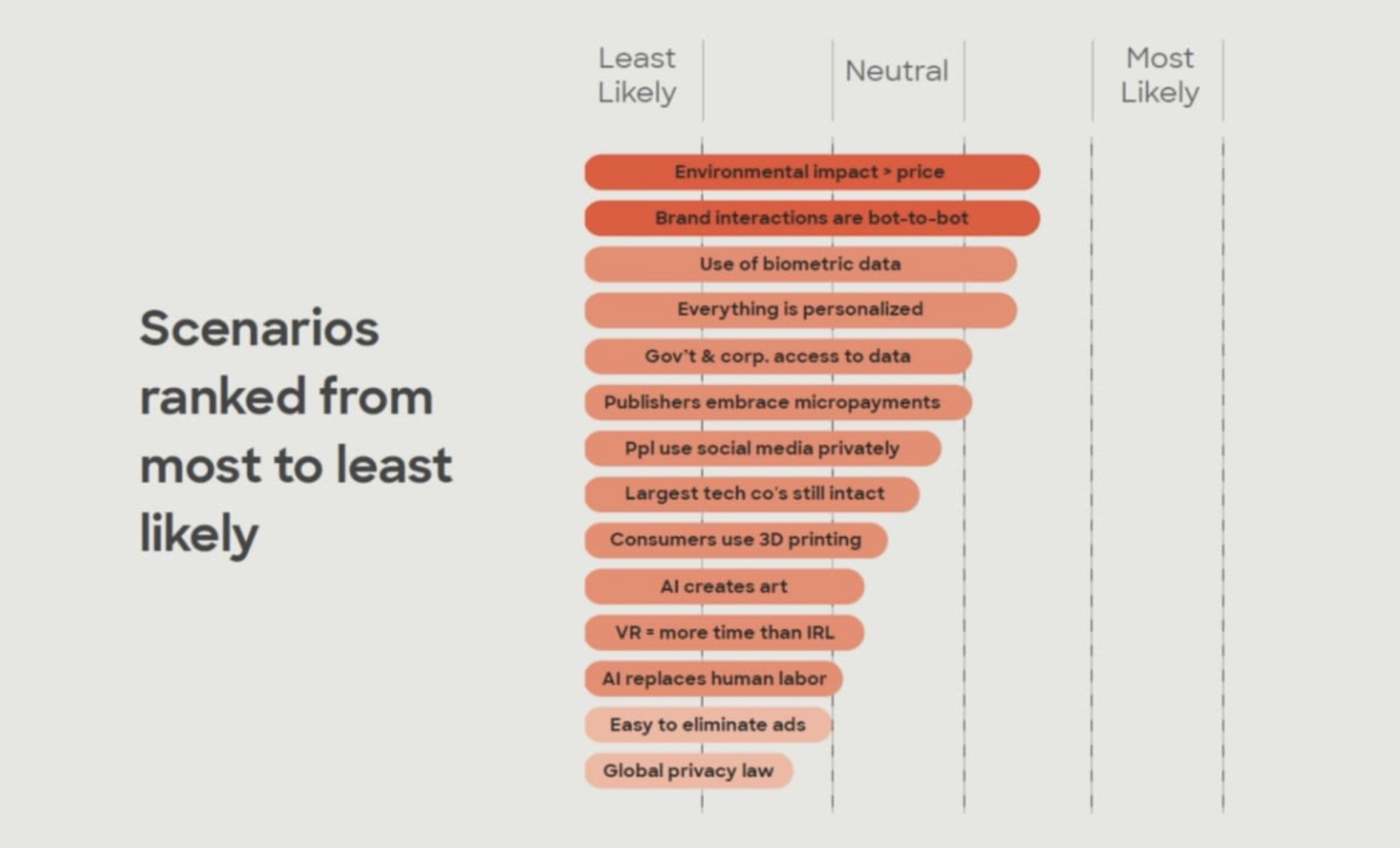Insights27th Apr 2020•4 minute read
Advertising in 2030 - Expert predictions on the future of advertising
Advertising in 2030 - Expert predictions on the future of advertising
Marketers have always been captivated by the future, whether selling it - foldable phones and self-parking cars - or trying to interpret and predict it to gain a strategic advantage.
This has never been more true than over the last decade, where our collective imaginations have been shaped by the technologies and technology companies remaking the way we do business and live out our daily lives.
Yet for all the insight into the potential paths for technologies to evolve over the next decade and well into the 21st century, we were struck by the lack of clarity around how marketing and advertising might evolve in conjunction with those changes.
With so little certainty around what brand marketers should expect over the coming decade, we set out to identify the boundaries of expectation and the areas of conventional wisdom and agreement. We were curious: Do leading decision makers and experts in our own field even believe advertising will continue to exist in ten years’ time?
In a study conducted between January and late February 2020, we interviewed nearly 50 industry experts, from academia, business, marketing, technology, publishing, and advertising trade organizations around the world to find out. Experts were asked to evaluate the likelihood of 15 different scenarios and their implications for the future of advertising - from data and personalization to AI, creativity, commerce, payments and the environment.]

Key findings from the report include:
Companies will need to become more transparent, sustainable, and purpose-driven to meet the expectations of post-Millennial generations over the next decade. As an example, experts predict this audience will make environmental considerations a primary factor in consumer decision making as the 10 year deadline established by the UN to avert the worst effects of climate change draws nearer. While experts are optimistic that AI will eliminate inefficiencies without creating widespread joblessness or eliminating the need for people, individuals and companies will need to create new kinds of jobs and embrace new fields in which to apply human creativity. An example of the dramatic impact experts expect AI to have on marketing is the prediction that consumers will begin to outsource purchasing decisions to machines, which will optimize selections based on our goals and preferences. Advertising will continue to enable access to content and services for many people, especially in developing countries, but experts also predict companies will begin to prioritize services over products in their marketing. Experts deemed it unlikely that people will be able to opt out of advertising entirely but expect subtler forms of marketing like product placement and sponsorships - integrated into frictionless services and experiences - to play an increasingly important role. Biometric data is likely to be established as a key component in consumer identity information by the end of the decade, making it necessary to focus on the development of corporate strategies and policies capable of securing its use.
In lieu of global regulation, experts predict that companies will collaborate to establish standards across transactions, identity, and security that will enable new payment and exchange models that will create scalable alternatives to subscription-based commerce.
